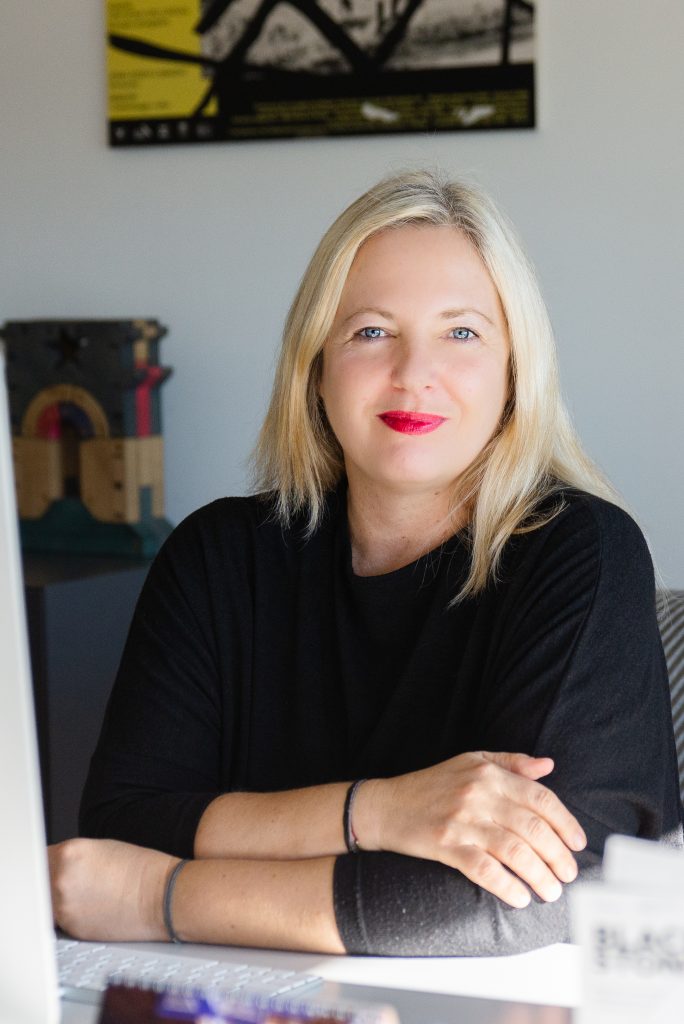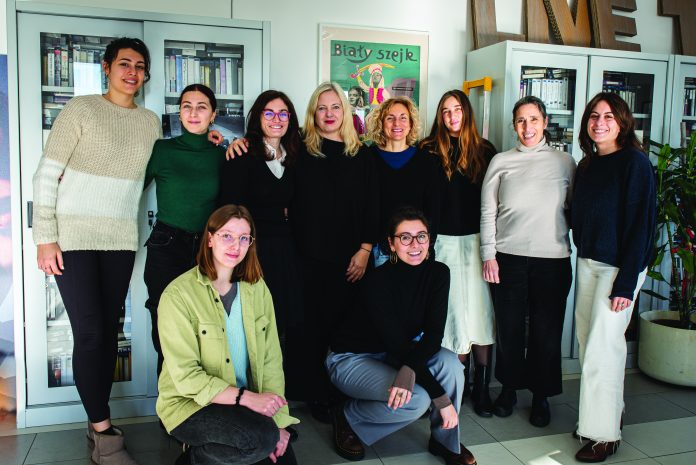by Julia Kyrdoda
Held annually on the third week of January, the Trieste Film Festival is a hub of creativity and cultural exchange that shines a spotlight on the dynamic cinema of Central and Eastern Europe.
In this interview, Nicoletta Romeo, Creative Director of the Trieste Film Festival, discusses how the event continues to innovate, embracing trends, sustainability, gender equality, and digital technologies while creating long-lasting connections with audiences.

How does the festival stay at the cutting edge of trends in cinema?
Nicoletta Romeo: I think cinema is the most innovative of all the arts. European cinema, especially Central and Eastern European cinema, which is our focus, is a consistent reflection of contemporary society. The films we show are strongly connected to social change, making cinema a deeply moving art form. Artists from around the world bring a unique sensibility to their work, and through their stories, we gain a deeper understanding of these shifts and transformations. Moreover, our festival is the balance between showcasing the work of first-time directors, young filmmakers, and masters.
I also believe that the festival’s innovative edge lies in its human factor. It is undoubtedly an auteur-driven experience, but it is also a deeply human experience, with human relationships at its core. This interplay of art and humanity makes the festival so dynamic and forward-looking.
How do you approach the integration of new technologies like virtual reality? Do you have anything related to this year’s festival?
NR: A few years ago, we experimented with virtual reality but soon realized that it wasn’t quite right for us. However, this year I can tell you that we will be hosting a masterclass with Victor Perez, a special effects expert who splits his time between Europe and Hollywood. This session will focus on the often-overlooked professionals behind the magic of cinema. After all, cinema is not just about filmmaking, acting, or production – it is also about the technology that brings magic to life.
Trieste is known for its cultural heritage. How does the city inspire the Festival?
NR: The city has always been essential to the Festival. It could only be born here because Trieste has always been a gateway to the East, offering a unique view of Eastern Europe countries! I must also say that the audience here is fantastic. It’s not just people from Trieste – our audience is international! However, over the years, I’ve noticed that the people of Trieste are passionate film lovers – real film buffs who are very loyal!
Our idea is to build the festival together with local realities: we have also formed many partnerships with local businesses, cultural associations, galleries, museums, hotels, and cafes. So, Trieste is truly a protagonist in the creation of the festival.
What is your strategy for attracting new people and retaining the ones you already have?
NR: It’s a huge job, and it’s not something we’ve improvised recently – it’s been a long-term effort. We engage with our audience throughout the year through newsletters and social media, keeping them informed of what we are doing. So, it’s not just about the festival, it’s about the cultural association behind it. Next month, for example, we’re organizing an afternoon dedicated to young children.
One of our main strategies for attracting new audiences, especially young people, is through our sidebar events. These events include master classes, filmmaker meetings, guided city tours, thematic panels, talks on specific topics, art and photography exhibitions, and others. Every year we also organize a concert with Hangar Theatre, a young theatre with incredible energy. Our Festival has a cultural mission that goes far beyond cinema; it’s about building an ongoing cultural project around the festival!
How does the festival address sustainability, and do you see growing demand for this?
NR: Sustainability is a focus for us, and we are committed to addressing it on many levels. Interest in sustainability is growing, especially among younger generations. In our team we have a Green Policy Manager. Also, we are working with local consultants to reduce energy costs and minimize environmental impact. For example, when transporting guests from the airport, we usually use shared cars to reduce emissions. We also prefer trains to planes whenever possible and work with local businesses that share our sustainability values, such as certified eco-friendly restaurants and hotels.
Last year, we dedicated two panels to the sustainability and accessibility of cultural events at the European level. We collaborate with the National Association of Italian Film Festivals (AFIC) and our European film festival network, MYOB (Moving Images Open Borders), funded by Creative Europe, to work on specific sustainability issues like reducing printing materials. In fact, we are printing less and less each year, preferring to use QR codes, and most of our materials are now digital.
What is the role of women in Festival leadership and how do they influence the industry?
NR: Having women in key roles sends a strong signal that women can thrive in leadership positions in the industry. The women I work with are amazing professionals, and it’s important to me that the environment remains safe, healthy, and non-toxic. We’re lucky to be in Trieste, a city with a long history of women’s emancipation, where women have always taken leadership roles, even in industry and factories. It’s important to preserve this space for women in the festival world. While many women are working in cinema and the arts, leadership positions in the industry are still often held by men. We’re working to change that, and I think we’ve made significant progress, but it takes practical action every day.
What advice would you give to young people wanting to get involved in filmmaking and the arts?
First of all, it’s very important to participate in film festivals, because they are not only cultural events but also social. For example, every year we have a program called “3 Festival Academy”, where we invite 100 film students from different European countries. They participate in screenings, special events, sidebar programs, and more. Being there and interacting with other young people from different countries in such a stimulating environment is a fantastic experience!
Therefore, my advice will be to stay open and willing to communicate – not just online, but in person. It’s important to engage with others, to debate, and to express your opinions. Film festivals offer a unique opportunity for this kind of open dialogue, making it a model for relationships and communication in a free, democratic space.
How do you see the future of the cinema in general?
I believe that people will always want to watch and tell stories. This fundamental need has not changed since prehistoric times when people drew stories on cave walls. The way we tell, and watch stories will evolve, thanks to innovations. However, the human need to share stories and to experience them will never disappear!





























